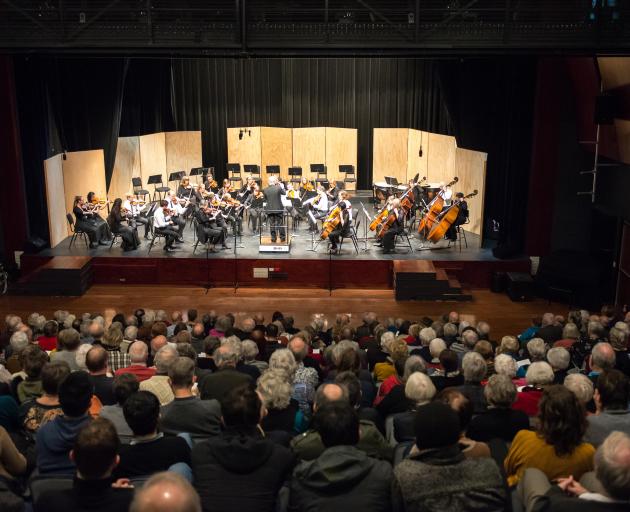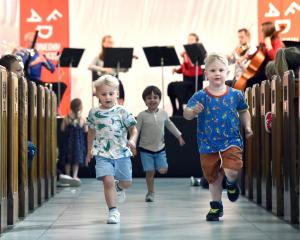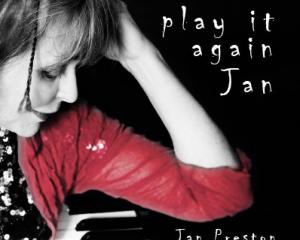
I attended the Saturday performance, where there was an air of excitement from both audience and musicians for this first post-lockdown ‘‘live’’ performance.
Entitled ‘‘Heroic’’, the programme featured three works, chosen to give everyone ‘‘plenty to play’’, beginning with Wind Serenade Op 7 by Richard Strauss, a 10-minute work first performed in 1882 when the composer was 18.
Having a woodwind-playing father gave the young Strauss an understanding of the capabilities of this orchestral section, and 13 DSO woodwind musicians interpreted his serenade with passionate blend, dynamics and individual gentle evocative moments.

The string section moved to Dvorak for its serenade (Op 22), a much longer five-movement work offering a variety of palette and character.
After a light, lyrical opening moderato, the tempo di valse gave immediate contrast with its familiar regulated forward-moving main theme. Aspirited scherzo and more tranquil larghetto were topped off by an allegro vivace with definite Bohemian dance character motivation.
I find at this venue, which puts the audience much closer to the stage, my focus is drawn to the individual performers, especially their part in repeating, answering and acknowledging thematic passages, with Young’s arms continually enthusiastic and gesticulating.
Beethoven’s Symphony No 3, Eroica, chosen to celebrate the 250th anniversary of Beethoven’s birth, completed the programme.
A massive work for the entire orchestra,it comprised three quarters of an hour of colour and contrast.
The full orchestra interpreted really well, and audience acclamation was long and complimentary.
In this venue one must choose whether to sit near the front and appreciate the finer aspects of orchestral performing, or climb to the back of the auditorium to enjoy the overall instrumental balance with much better merging acoustically.
Dunedin Symphony Orchestra
King’s and Queen’s Performing Arts Centre Saturday, July 18
- Elizabeth Bouman











